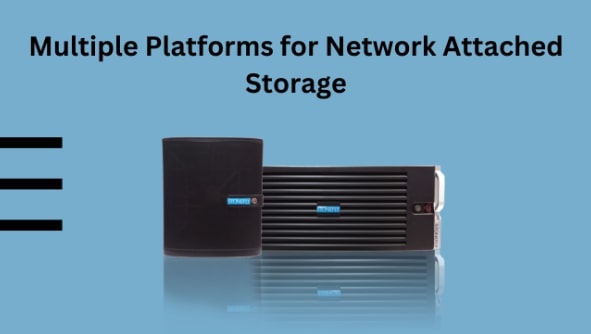When it comes to network attached storage (NAS), there are a few different platform options available on the market. In this blog post, we’ll take a look at some of the most popular NAS platforms and dispel some common myths about NAS in general.
What is NAS?
Before we dive into the different types of NAS available, let’s first take a step back and define what NAS actually is. Network attached storage is simply a file storage device that connects to a computer network – typically via Ethernet – allowing users on that network to access the stored files. NAS devices are often used in small and medium-sized businesses (SMBs) as an alternative to expensive and complicated SAN (storage area network) devices.
Most NAS devices come equipped with their own operating system, which allows for easy administration of the device and its contents. This also means that users don’t need any special training or knowledge to be able to access and use a NAS system. In addition, many NAS devices come with built-in applications that allow for easy management of tasks like file sharing, backing up data, and more.
Common Misconceptions about NAS
Now that we’ve got a basic understanding of what NAS is, let’s dispel some common misconceptions about this type of storage solution.
One of the most common misconceptions about NAS is that it’s only suitable for small businesses or home offices. However, this simply isn’t true – NAS Appliance can be used by organizations of all sizes. While you may not need an enterprise-grade NAS system if you’re a small business, there are plenty of mid-range and even high-end systems available on the market that offer features and capabilities that larger organizations need.
Another common misconception about NAS is that it’s only suitable for storing files. While it’s true that most people use NAS Appliance for file storage, these devices can actually do so much more. Thanks to the built-in applications that many NAS devices come with, they can also be used for tasks like user authentication, database management, networking services, email servers, and more.
For a full rundown on everything that NAS Appliance can do for your business, check out our dedicated blog post on the subject.
Types of Network Attached Storage Devices
Now that we know a little bit more about what a NAS Appliance is and what it can do, let’s take a look at some of the different types of devices available on the market. Some of the types are listed below-
1U Rack Mountable Systems:
These types of systems are designed to be mounted in a standard 19″ server rack. They’re typically very compact – usually no more than 1U (1 rack unit) in height – which makes them ideal for use in space-constrained environments like data centers.
2U & 4U Rack Mountable Systems:
As you might have guessed from their name, these systems are also designed to be mounted in server racks – typically 2U or 4U racks. Unlike 1U systems, however, 2U & 4U systems tend to be much larger and offer more features and functionality than their 1U counterparts. As such, they’re often used in medium to large businesses as well as enterprise organizations.
Tower Systems:
Tower systems are standalone units that aren’t designed to be rack mounted. Instead, they’re meant to sit on top of or underneath desks – making them ideal for use in small offices or home offices (SOHOs). While they don’t offer as many features as 2U or 4U rack mountable systems, they’re much easier to set up and use – making them a good option for those who aren’t as technically inclined.
Dedicated Servers:
Dedicated servers are stand-alone units that are designed specifically for hosting applications and services. While they can be used for file storage like other types of network attached storage devices, they’re often used for tasks like email hosting, web hosting, database management, and more. As such, they tend to be much more expensive than other types of nas . . . but they also offer significantly more power and functionality
Conclusion:
There are many different types of nas platforms available on the market today – each with its own set of benefits and drawbacks. In this blog post, we covered some of the most popular nas platforms , as well as dispel some common misconceptions about nas . Hopefully this has given you a better understanding of what gas is , what it can do ,and what type of nas device might be right for your needs . If you have any additional questions , please don’t hesitate to reach out to us ! We’re always happy to help .

